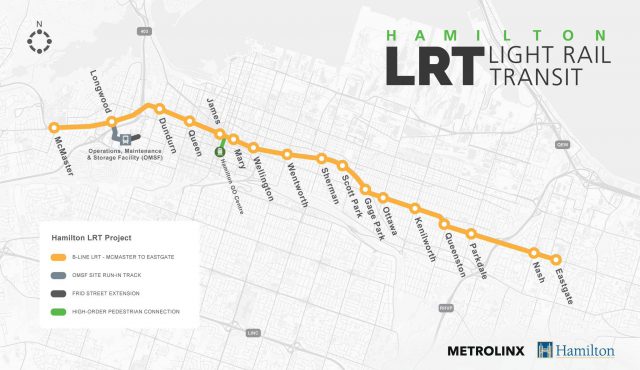The uncertainties that surround Hamilton’s light rail transit (LRT) project are threatening to stall private investment across the lower city.

That confirmation comes from Glen Norton, the city’s director of economic development, who says many developers have “slowed down” their plans along the 14-kilometre, east-west transit line.
Norton stresses that while a lot of property has been purchased along the light rail transit route, his department is seeing very few development applications.
He adds that

Get daily National news
“It would be fair to say that those developers who were counting on LRT as part of their business case” are questioning “whether it’s 100 per cent it will get built,” he adds.
Norton suggests the province’s current freeze on land purchases along the route, through Metrolinx, is one reason “nobody is believing the LRT is coming” to Hamilton.
There have also been questions about the accuracy of the projected $1-billion construction cost, and who pays the tab if it surpasses the province’s $1-billion contribution.
Norton made the comments on Wednesday morning while presenting his annual economic development action plan update to city councillors.
He painted a mainly positive picture, highlighting January’s 3.9 per cent unemployment rate, which is the second lowest in Ontario, along with the 939 new businesses which have started operating in Hamilton since 2015.
Norton says the city is on target to increase its supply of “shovel ready” land by 500 acres but is struggling with a goal of reducing its office vacancy rate to seven per cent by 2020 from 12.7 per cent last year.








Comments